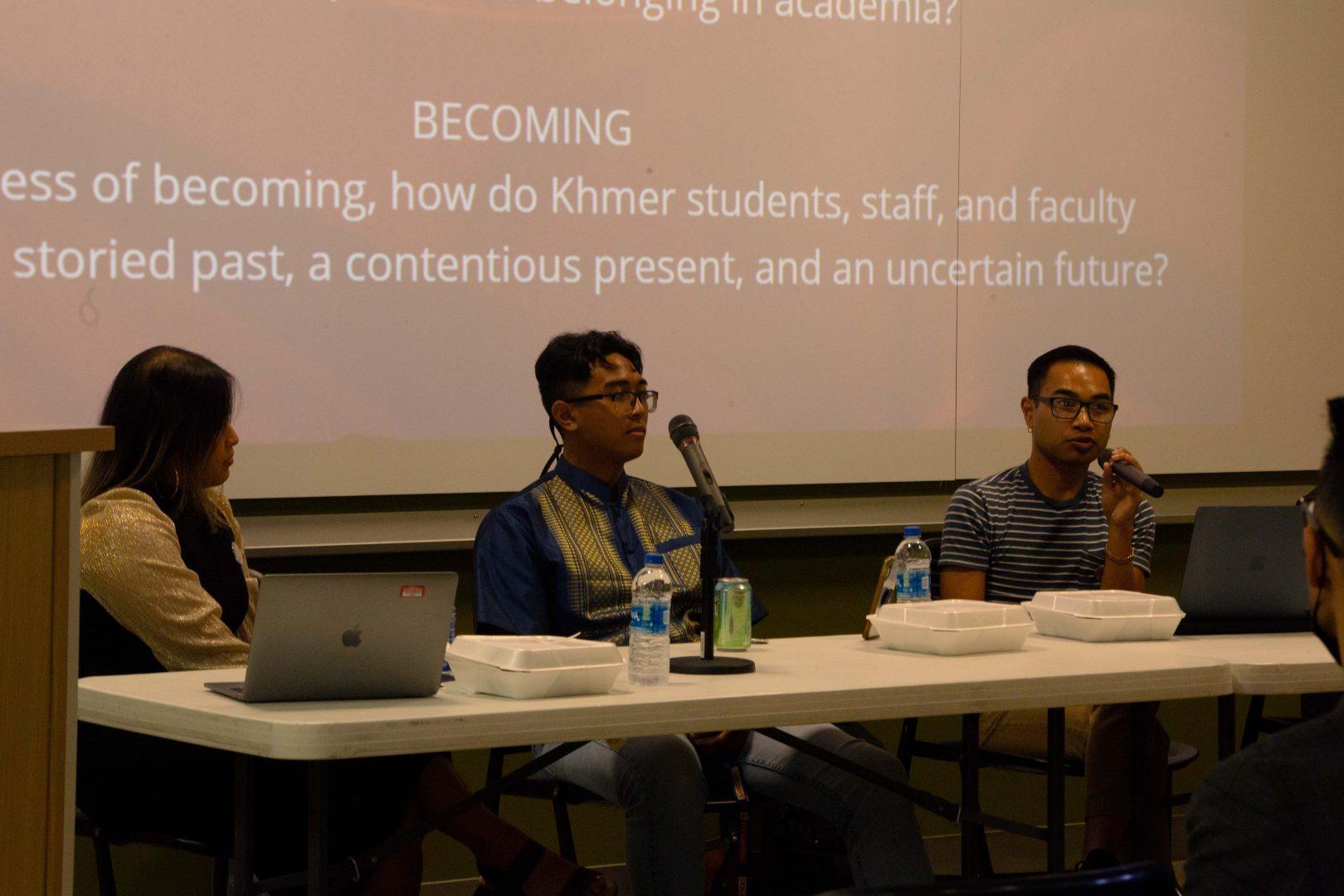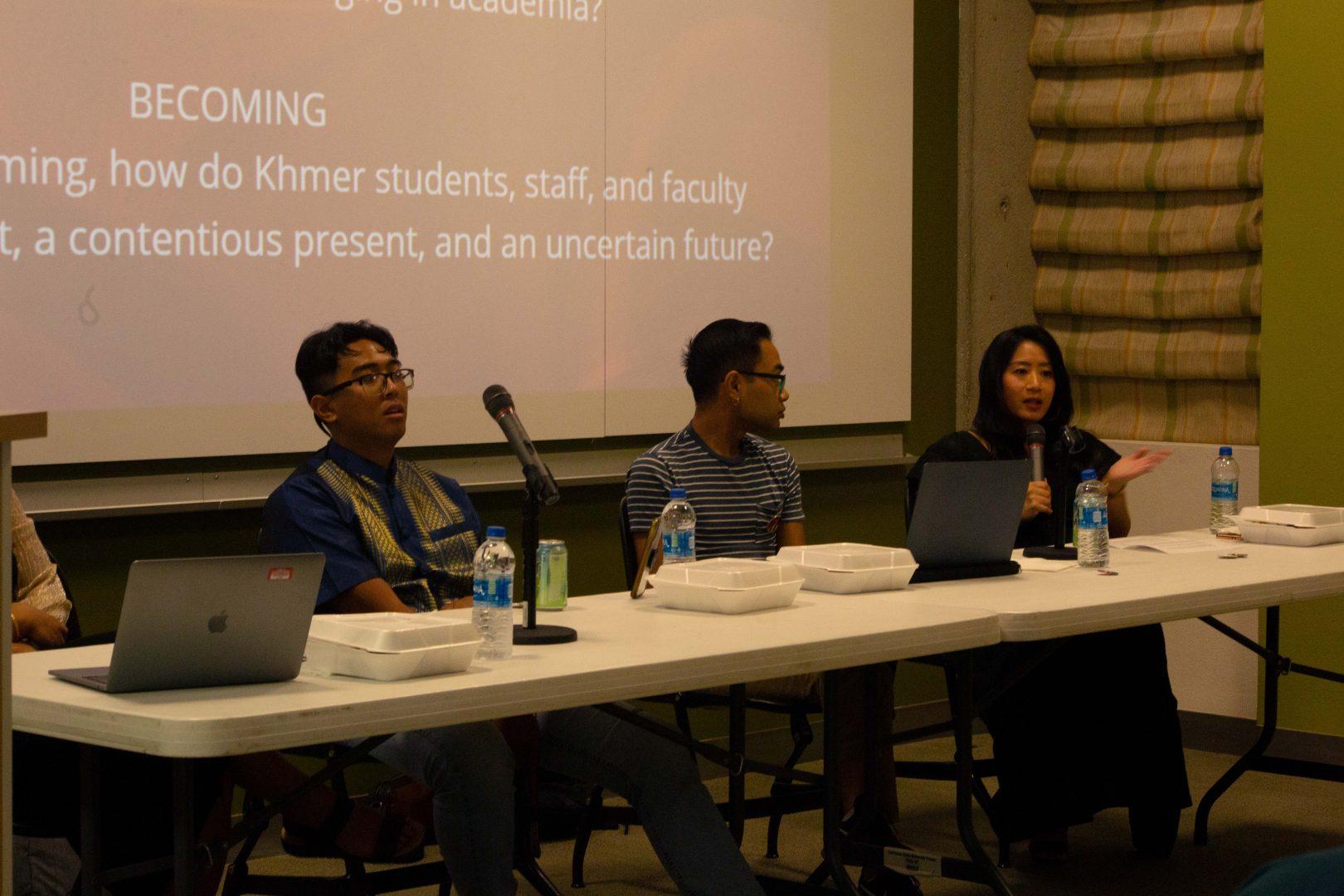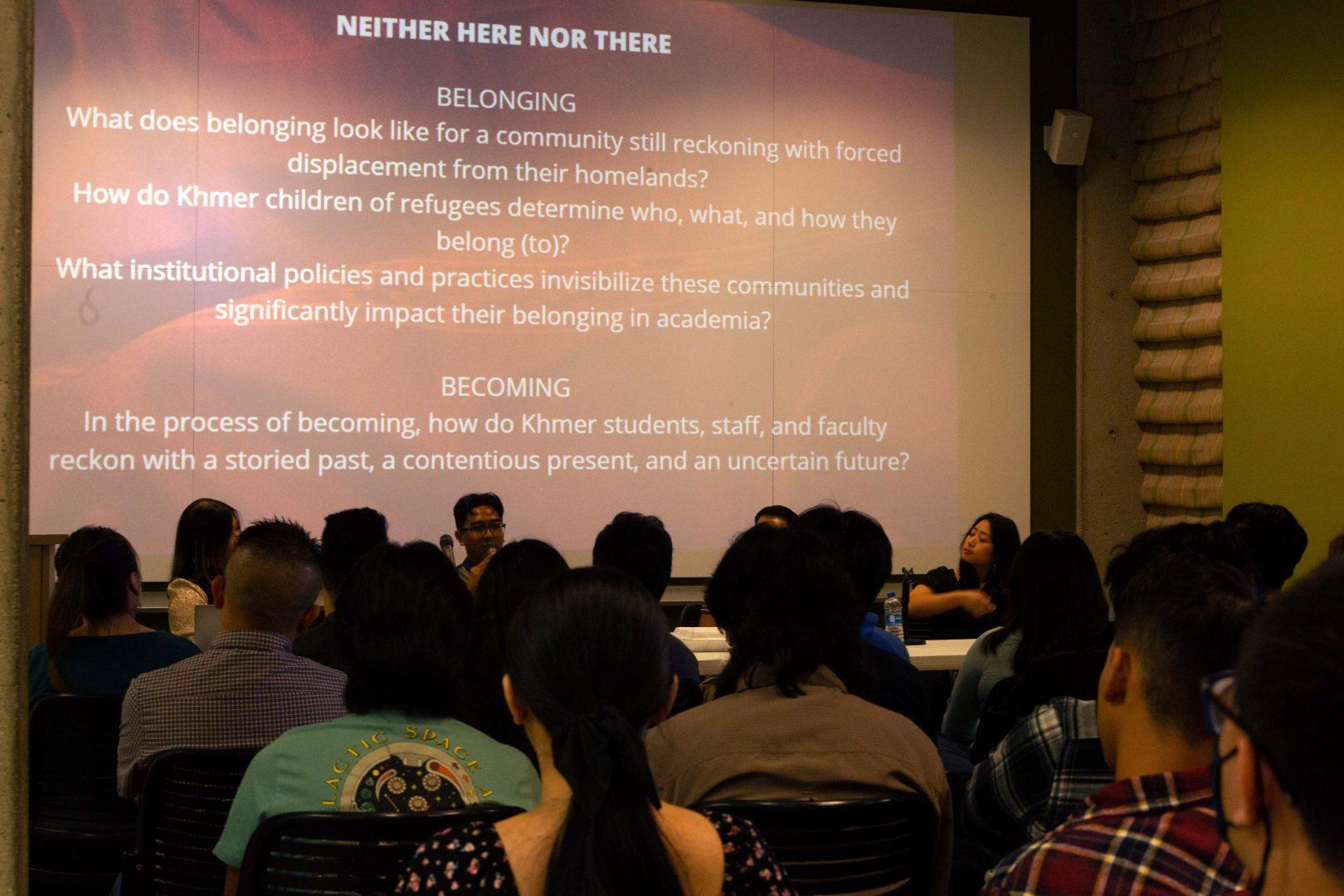In 2002, there were 150 Khmer students enrolled at Fresno State. In fall 2022, there are 96 Khmer students enrolled.
“I think it’s really important for us to recognize we’re here and often we’ve been [made invisible] because of the numbers,” said Varaxy Yi Borromeo, assistant professor in the Kremen School of Education and Human Development.
Borromeo was one of four panelists who spoke about the Khmer experience at Fresno State during “Neither Here Nor There: Khmer Reflections on Belonging and Becoming at Fresno State” on Oct. 12 at Room 3212 at the Library.
Hosted by the Asian Pacific American Programs and Services at the Cross Cultural and Gender Center (CCGC), the event was presented as the second installment of the Lunch and Learn series.
Lunch and Learn is an annual series presented by the CCGC that aims to bring keynote Asian American Pacific Islander (AAPI) speakers to share their experiences of “belonging and becoming” in higher education, according to the event’s description.
“Because oftentimes it comes down to how many, right? Who [are] the largest groups here on this campus? And so, those who come in smaller numbers are often not seen to the level that we probably should be,” Borromeo said.

Borromeo was joined by panelists Chantrea Samuel Chheng, a fourth-year psychology major and Asian American studies minor; Vanna Nauk, a Fresno State alumnus and part-time lecturer in the Asian American studies program; and Melissa Tav, communications specialist for the College of Health and Human Services.
Nauk and Borromeo opened the panel with a brief presentation on the history of the Khmer people, discussing the Khmer Golden Era from 1945 to 1975 when Cambodia gained its independence from France and grew into a prosperous empire.
After the Cambodian genocide began in 1970, which led to the death of nearly 2 million Khmer people out of a population of 8 million, Nauk said many memories of the Khmer people were lost as it was not always written during this period. Following this came a period of “exile.”
“And when we hear the word exile, it sounds really extreme, but I think very few Khmer folks, especially the ones who were born here don’t realize that our family came here in exile,” Nauk said. “In other words, we came here because we didn’t have a choice.”
This “trauma” that impacted many generations of Khmer individuals is something Borromeo said is important to recognize to be aware of the history behind the Khmer diaspora.
“And so, we bring this to you to have you highlight that we’re not just the genocide, the trauma that comes [from] that. We’re also the empire that came before us, and the diaspora here is attempting to determine where we go in the future for our people,” Borromeo said.
For Chheng entering Fresno State as a student felt challenging. He noted that he wasn’t sure where he “belonged.”
After meeting Khmer students and other Southeast Asian students, Chheng said he views them as “brothers and sisters” who helped him overcome the sense of invisibility.
“Because we all come from times of war and a lot of us are coming from low-income families,”
he said. “So, definitely having that unity together to share those same experiences. Even though all of our stories are different, that’s what makes us unique as people
Tav shared Chheng’s feeling of invisibility when first joining Fresno State, and said oftentimes she was “the only Asian in the room.”

“Being the only Khmer or Southeast Asian in the room was always something I was very used to,” she said.
After attending a program in 2018 where she met a number of AAPI individuals in higher education, Tav said she finally felt a sense of visibility and made it a personal goal to branch out further at Fresno State and meet others like her at the university level.
Fresno State is designated an Asian American and Native American Pacific Islander Serving Institution (AANAPISI), and received a $1.2 million grant in May 2022 to assist AAPI criminology students. Borromeo said this is an opportunity for the university to invest more to support Southeast Asian American and Khmer students.
“I would have to look at some of the numbers, [but] I think the [California State University] system… is beginning to recognize Southeast Asian American students under their ‘underrepresented minority.’ It’s still not recognized, but more conversations have been had,” she said.
Kathy Moua, interim coordinator for Asian Pacific American Programs and Services, said she hopes ongoing events like Lunch and Learn can offer AAPI students the opportunity to learn and become confident in their own identities.
Moua emphasized that, although Asian American history in the USA begins with much oppression and trauma from various wars, Asian American history itself comes “from prosperity.”
“So I just want to show our students that you can be proud of your identity in the roots, which goes deeper,” she said.
Another Lunch and Learn is planned for spring 2023 with panelist Yang Sao Xiong from the Anthropology Department. More information on upcoming AAPI events can be found on the CCGC website.
CORRECTION OCT. 24, 2022:
A previous version of this article incorrectly stated the name of the panelist for the upcoming Lunch and Learn panel in spring 2023. The statement from Kathy Moua has also been clarified.




